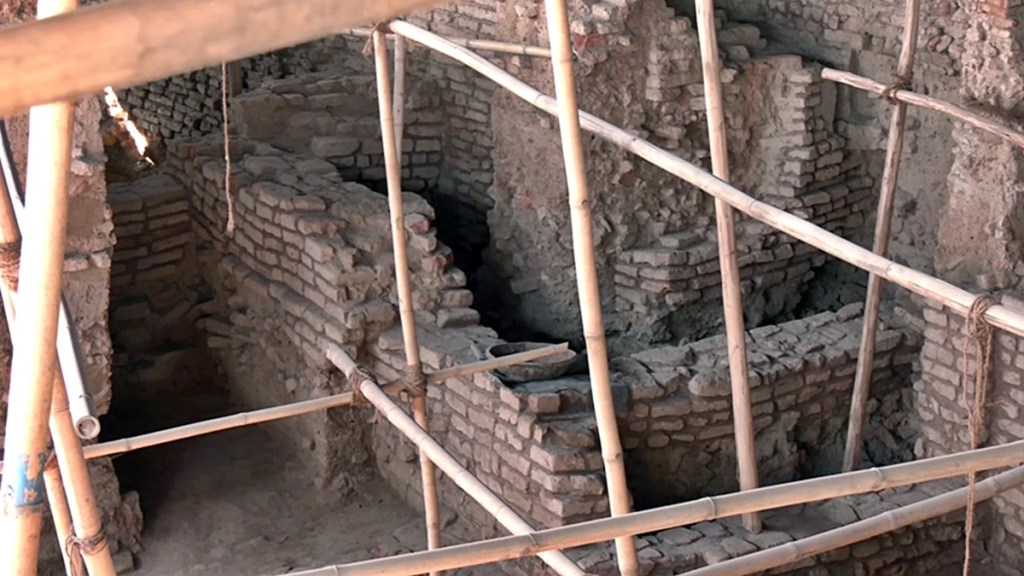Evidence of human settlement dating back to 800 BCE (before the Christian era), nearly 2,800 years old, has been found in Prime Minister Narendra Modi’s village in Vadnagar, Gujarat, according to a collaborative study conducted by the Indian Institute of Technology, Kharagpur.
Dr. Anindya Sarkar, a professor of geology and geophysics at IIT Kharagpur, stated on Tuesday that research from deep archaeological excavations at Vadnagar suggests that severe climatic changes, such as droughts, were a major factor in the rise and fall of various kingdoms over the course of the 3,500-year period as well as the repeated invasions of India by warriors from Central Asia.
Also Read:PM Modi to be gifted 15-metre picture of Ram Mandir on Jan 22, invitees to get Ram Janmabhoomi soil
“The team has been working in Vadnagar with the Archaeological Survey of India (ASI) for the last 4-5 years. A very old Buddhist monastery was also unearthed… ASI has been working from 2016-2023 and has excavated up to a depth of 20 mtrs… The history of Vadnagar goes long back,” Sarkar told ANI.
Notably, Sarkar mentioned that Vadnagar stands out as the sole archaeological site in India where the entire span of early to medieval history is meticulously preserved, featuring a known chronological timeline.
Also Read:Rituals begin at Ram Temple ahead of consecration ceremony in Ayodhya, ‘parisar pravesh’ today
“It is also the oldest living fortified city in India with continuous habitation from 800 BCE. Seven cultural layers have been unearthed, the oldest layer dates back to 2800 years or 800 BCE,” he added.
Sarkar also mentioned, “Some of our recent unpublished radiocarbon dates suggest that the settlement could be as old as 1400 BCE or 1500 BCE contemporary to the very late phase of the post-urban Harappan period.” He went on to say that this hints at a consistent cultural history in India over the past 5,000 years, challenging the idea of a ‘Dark Age’ as possibly untrue.
Also Read:Modi and RSS ‘captured’ Ram Temple inauguration, turned it into election event: Rahul Gandhi
“Our isotope data and dates of the cultural periods at Vadnagar suggest that all these invasions happened precisely when the agrarian Indian subcontinent was prosperous with stronger monsoons but the Central Asia was extremely dry and uninhabitable with recurrent droughts from where almost all the invasions and migrations happened,” added Sarkar.
Mukesh Thakor, the Archaeological supervisor, highlighted the ongoing excavations in Vadnagar, which commenced during PM Modi’s tenure as the Chief Minister of Gujarat. Thakor credited the city’s continuous habitation to its efficient water management system and ideal water levels, with over a lakh remains having been discovered to date. He revealed that over thirty sites have been dug up at Vadnagar, exposing the peaceful coexistence of followers of Buddhism, Jainism, and Hinduism.
(With ANI Inputs)
